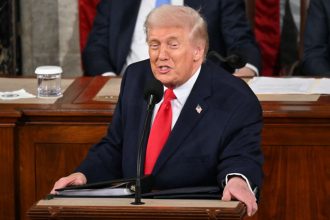In a development that could signal a thaw in strained relations, India and China are in active talks to restart border trade — a key link between communities on both sides of the Himalayas — after a five-year suspension.
Although the trade across these icy, high-altitude passes has historically been modest in volume, its value lies far beyond numbers. For generations, it has been a lifeline for people living in some of the most remote and challenging terrains, fostering cultural connections and economic exchanges.
The conversation around resuming trade comes at a time when both nations face shifting global dynamics. US tariffs and a turbulent geopolitical climate have pushed countries to rethink old rivalries and seek new areas of cooperation.
According to Indian media, Chinese Foreign Minister Wang Yi is set to visit New Delhi on Monday, following Indian Foreign Minister Subrahmanyam Jaishankar’s trip to Beijing last month. These visits have already led to agreements on resuming direct flights and issuing tourist visas — steps aimed at mending a relationship badly damaged by the deadly 2020 border clash.
“China–India border trade cooperation has long been vital to improving the lives of border residents,” China’s foreign ministry told AFP, adding that both sides have reached a consensus on restarting cross-border exchanges.
India’s junior foreign minister Kirti Vardhan Singh confirmed that New Delhi is in discussions to facilitate the resumption of trade, though no specific date has been announced.
The backdrop of these talks includes broader global tensions. While India remains part of the Quad security alliance with the US, Australia, and Japan, trade disagreements with Washington — particularly over Russian oil imports — have introduced new challenges. The US has warned of steep tariff hikes on Indian imports if New Delhi doesn’t shift its crude suppliers.
There’s also speculation about a possible visit by Prime Minister Narendra Modi to China later this month — his first since 2018 — for the Shanghai Cooperation Organisation summit. Beijing has publicly welcomed the idea.
If the trade route reopens, it will be more than a diplomatic gesture. It could mean renewed opportunities for border communities, a reduction in political friction, and perhaps a step toward a more stable relationship between two of the world’s largest economies.








